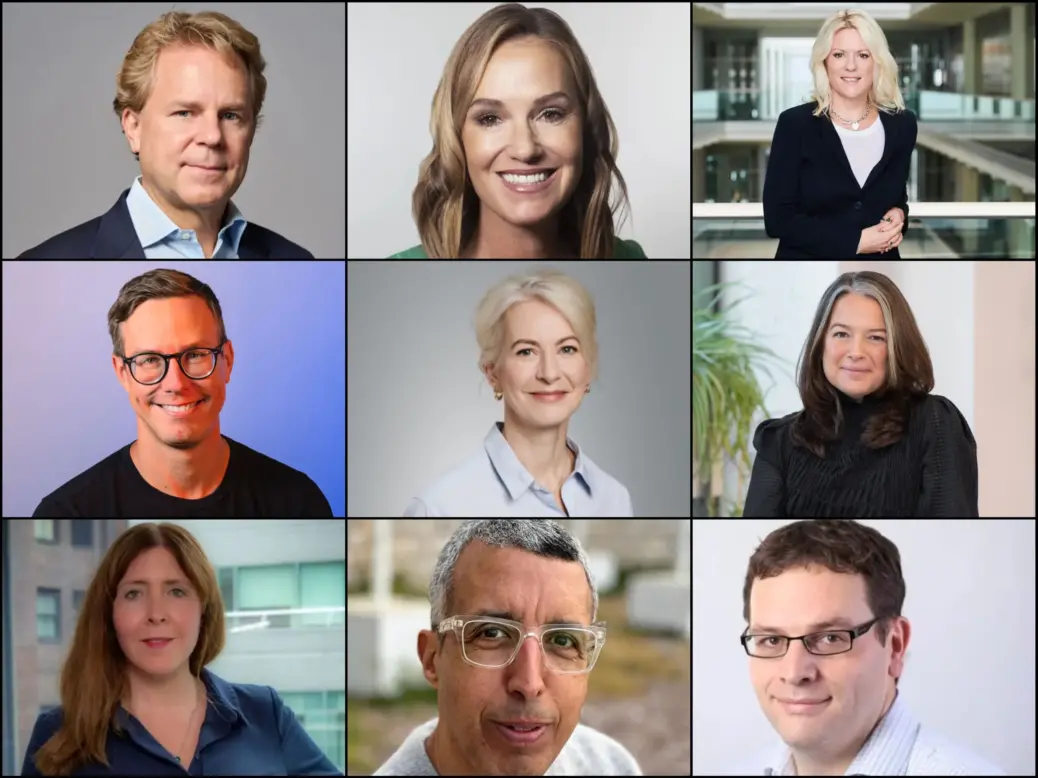
News publishing bosses from the UK, US and Australia have shared predictions, in the form of their biggest challenges and reasons for opitmism, for 2024.
Five chief executives, four editorial leaders, four digital bosses and three revenue leaders were among those to answer Press Gazette’s call for predictions for the coming year.
This year has proved tough for many publishers, with growth in the advertising market failing to make its way to trusted news providers and changing priorities at the tech giants meaning referrals from Google, Facebook and other social media platforms have fallen for many.
Will next year have the same challenges? We asked our panel:
What is your biggest challenge for 2024, and how will you deal with it? And what are your reasons to be cheerful?
We have started by pulling out four recurring themes from the answers we received, before sharing them all in full. You can find quick links to skip to each contributor below:
- Kamal Ahmed, The News Movement editor-in-chief and co-founder
- Anna Bateson, Guardian News & Media chief executive
- Jenny Baird, EVP and MD BBC Global Digital News
- Julia Beizer, Bloomberg Media chief digital officer
- Michael Booker, GB News editorial director
- Wendy Brundige, senior vice president of content strategy CNN Digital Worldwide
- Nicholas Carlson, Business Insider global editor-in-chief
- Christine Cook, chief revenue officer, Bloomberg Media
- Rachel Corp, ITN chief executive
- Nick Flood, Future global ad product & revenue operations director
- David Higgerson, Reach chief digital publisher
- James Lamon, Footballco EVP content & operations
- Almar Latour, CEO Dow Jones and publisher Wall Street Journal
- Will Payne, The Sun director of digital (editorial)
- Sherry Phillips, Forbes chief revenue officer
- Scott Purcell, Man of Many co-founder
- Justin Smith, Semafor co-founder and chief executive
- Katie Vanneck-Smith, Hearst UK chief executive
1. Building direct relationships as search and social referrals fall
As Bloomberg Media chief digital officer Julia Beizer noted, referrals from search engines and social media platforms have “hit some of their lowest lows, driven by massive changes at the platforms.
“We can choose to see this as yet-another-blown handed to the industry by big tech – or we can see it as an opportunity,” she said.
But publishers can take this moment to pursue a much-needed shift in priority to loyalty, Beizer believes. “The search and social era gave us many gifts of audience, but it also robbed us of loyalty. The biggest challenge for the news industry this year and in the years to come is to figure out how to earn that back in a time where consumers are picking up new news consumption patterns and habits that will stick.”
This shift may include certain publishers “remembering you don’t want to be a publication for everybody”, Business Insider global editor-in-chief Nicholas Carlson said.
“Because there are news aggregators built into every phone, that path can be tempting. But it leads to generic and predictable journalism at best.”
It’s a similar story at other business publishers. Forbes chief revenue officer Sherry Phillips said: “We’re seizing new opportunities to build stronger and more meaningful direct relationships with our global audience. For example, the focus on our Forbes Vetted product as part of our broader e-commerce and consumer strategy ensures the delivery of curated, trustworthy content tailored to unique interests.”
And Semafor co-founder and chief executive Justin Smith said: “The biggest challenge for news publishers is also our biggest opportunity – how to build and grow an audience during the decline of social media… We’ve worked since day one to grow the Semafor audience mostly off-platform and cultivate direct one-to-one relationships with our readers.”
Others may prefer to balance a drive for loyalty and engagement alongside their existing scale models. The Sun’s director of digital (editorial) Will Payne described the changes at the likes of Google and Facebook as its “biggest challenge” for 2024 but said “we are seeing this challenge as an opportunity and our objective for the coming year is to drive deeper engagement with readers, employing new, multi-format content strategies, to complement our scale model”.
And at Reach, chief digital publisher David Higgerson said the platform changes make “direct relationships with readers much more important, yet is only part of the story. We need to avoid at all costs turning journalism into a service for the naturally hyper-engaged, so need to find ways to reconnect with the upwards of 30% of people who claim to be regular news avoiders”.
2. Responding to advertising headwinds and death of cookies
Press Gazette reported at the end of October that the UK ad market was expected to grow, but the good news is reserved for the tech platforms with legacy media suffering declines. A similar pattern is understood to be taking place in the US.
The Guardian’s chief executive Anna Bateson said these continued headwinds mean it is crucial to showcase a publisher’s “unique formula” where it has one – at her company that is “scale, influence and integrity”.
Footballco’s EVP content and operations James Lamon said revenue diversification is key: “All publishers have seen advertising spending fall this year, Footballco included. We projected a down year after the blockbuster World Cup in 2022, but 2023 brought unwelcome surprises with the war in the Middle East and economic uncertainty. We were able to lessen this impact via growth in revenue diversification, specifically affiliate which grew 300% in 2023 and subscription revenues from the re-launch of Mundial magazine.” The sports publisher has also invested in regions where the ad market is growing quickly, with Lamon citing Saudi Arabia.
Meanwhile Google aims to phase out third-party cookies for all users of the Chrome browser in the second half of 2024 and said it will begin testing a new feature that limits cross-site tracking from 4 January.
Future’s global ad product and revenue operations director Nick Flood said this means “agencies and advertisers are going to struggle to find their target audiences across the open web” and a “key question for us next year will be how we can help to best reach audiences online and deliver results.
“As a result, in 2024 publishers will increasingly look to build their own sophisticated targeting solutions to address both advertiser needs and audience demands through first party solutions such as Future’s Aperture and contextual solutions.”
3. Acting on challenges and opportunities of AI
It has been just over a year since ChatGPT went live and shocked the world with its popularity and potential. Since then, news publishers have spent a large amount of time and effort exploring the possible uses of generative AI technology in their workflows. Many are also keen to highlight the potential harms of AI, including via the creation of misinformation, and believe this means trusted news providers have an even more important job to come.
Scott Purcell, co-founder of Australian men’s lifestyle site Man of Many, suggested AI will pose a “significant challenge” to publisher traffic: “With AI’s growing presence, there’s been a deluge of content in the market, much needing more quality. This makes it challenging for publishers like us to compete and stand out. However, we view this as an opportunity to double down on what we do best – creating quality, original, and people-first content. As Google’s systems evolve to detect better and highlight such content, we believe there’s immense value in the insights and originality offered by experts, something that AI-generated content, often based on existing knowledge, cannot replicate.”
ITN chief executive Rachel Corp said the broadcast news company will be “continuing to closely monitor the commercial impact and opportunities presented by AI. Over the past year there has been a significant focus on large language models and at ITN we are focused on how video models are developing. It is really important that policymakers are alive to the potential impact AI could have on the financial viability of journalism going forward, whether that’s through our copyright being infringed or search results incorporating our journalism without credit or re-direction to our websites.”
The Sun’s Payne described AI as a “great opportunity” as well as “an industry disruptor”. “…by using it to improve newsroom workflows, we can free up our journalists up to produce more high-quality, trusted content,” he said. “In a world of mass AI-produced, low-value content, quality journalism will be at even more of a premium than it has ever been.”
Similarly Hearst UK chief executive Katie Vanneck-Smith said: “We also need to encourage our editors to be braver, focusing on the exceptional content AI can’t replicate.”
Generative AI can also help behind the scenes, as Phillips at Forbes emphasised. “While many are understandably cautious about implementing emerging technologies such as AI, at Forbes, we believe that AI has the power to redefine how businesses operate, power growth, and redefine how brands are perceived. There is so much to be gained from experimenting with AI as a tool to enhance our work without ever replacing the role of individual contributors.”
4. Highlighting trusted and accurate information in a key election year
In 2024 the UK will (most likely) hold its next general election with other major polling days in the US, Russia, Ukraine, Taiwan, South Africa and the European Parliament.
The News Movement editor-in-chief Kamal Ahmed said: “Our challenge is to help our audiences understand the issues and defeat misinformation,” while ITN’s Corp said: “Elections are a really exciting time for any newsroom, but we need to ensure that technological developments such as generative AI don’t negatively impact the trusted and impartial reporting that we know audiences turn to us for.”
GB News editorial director Mick Booker said the UK election provides an opportunity for a differentiated brand: “It’s the authenticity and honesty of GB News that makes us stand out from the rest. We can’t lose sight of that and that is going to be particularly important in the next 12 months with an election campaign where politicians will be queueing up to honk on about why they should be in charge.”
And Reach’s Higgerson suggested this was a good reason (of several he shared) for the UK Government to press ahead with the Digital Markets Bill. “Where platforms actively deprioritise accurate journalism, such as Meta, the Government must look at the impact on society of such a decision, especially in an election year.”
Keep reading to see the full answers from all 14 participants.
What’s the biggest challenge for you in 2024, and how will you deal with it? And conversely, what are your reasons to be cheerful?
Kamal Ahmed, The News Movement
Editor-in-chief and co-founder

As a young business, 2024 is all about building on our record growth in audiences and revenues. We know that as an industry we need to do more to serve audiences where they are, and that often means social media first. To see The News Movement and many others flourish with new types of content creation for ever-bigger audiences is very heartening.
What we have loved about 2023 is that it has proved once again the importance of trusted, accurate journalism. Whether that is Israel/Palestine, the war in Ukraine, climate change, the cost of living crisis, better mental health or immigration – people need the facts delivered by professionals in an engaging way.
Next year 3.2 billion people will go to the polls – from the US to South Africa, India to Indonesia, the UK to Mexico. Our challenge is to help our audiences understand the issues and defeat misinformation. I know we are well set to do that.
Jennie Baird
EVP and MD BBC Global Digital News
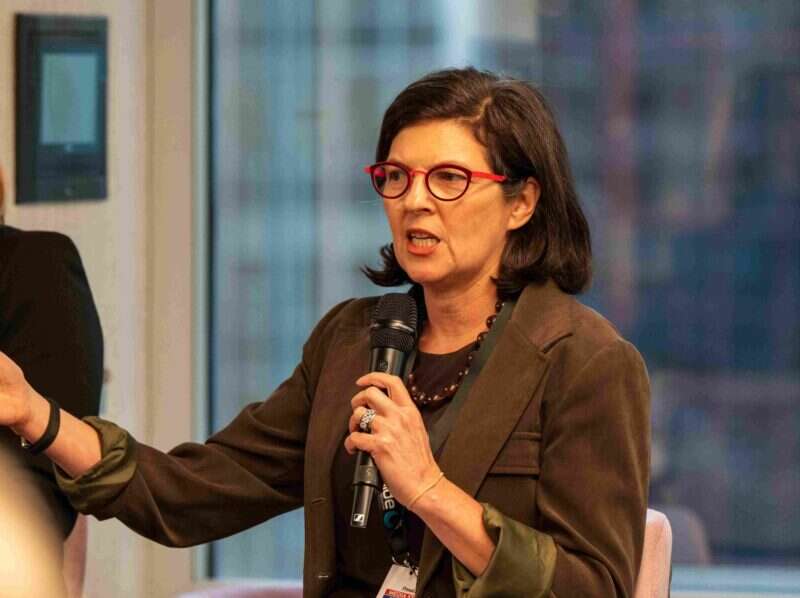
As if our industry hasn’t seen enough disruption already, I think 2024 is going to be perhaps the most disrupted ever. The pace of GenAI development and integration within the platforms where consumers bump into news will hasten. As such, volume of content on those platforms will increase, while the quality of information in those places will continue to decline – but most consumers who have been raised on a steady diet info bites, misinformation, and disinformation, won’t even notice. While this is a scary prospect for society and democracy, it’s also an opportunity for news publishers to double down on serving – and expanding — our core audiences with content that is high quality, trustworthy, and valuable.
So, my forecast is:
- A difficult transition year for publishers as they grow their owned user base and lean into what differentiates them
- A year of deep and sustained creativity: The major anticipated news events of the year ahead – particularly elections in the U.S. and UK, will drive some of the most exciting innovations in the engaging presentation of news and information ever
- More coordination and collaboration among publishing industry peers to solve key business problems at scale, be that scaled advertising solutions, sustainable business models vis a vis LLMs, or endeavors that increase consumer trust in the very institution of journalism.
Anna Bateson, Guardian News & Media
Chief executive
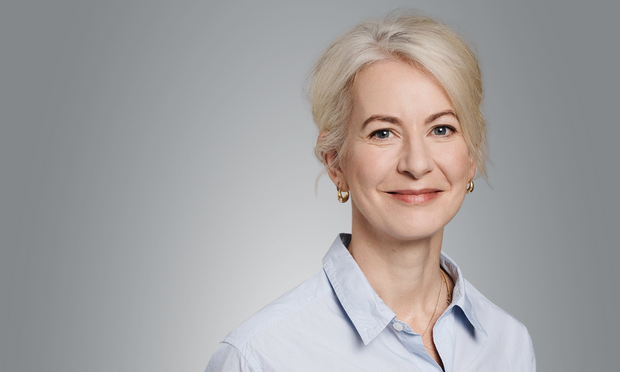
In a year of conflicts, mass protests, strikes and growing calls for climate action, the importance of fair and fact-based journalism is more evident than ever. As an organisation, this means focusing on what sets the Guardian apart – we are open to all, funded by many and beholden to no one – and we must continue to evolve and innovate.
The challenges ahead are similar for many publishers, from reporting in multiple warzones to tough market conditions for media. However the Guardian’s award-winning global journalism, documentaries, podcasts and newsletters – helping us collect news provider of the year at this year’s British Journalism Awards – and our pioneering reader revenue model means we have a strong platform for growth, with well over one million regular recurring digital supporters. Understanding Guardian readers better and cultivating even deeper relationships will be key for 2024.
This year, we launched a new Europe edition engaging Guardian readers with the stories and issues that matter to them most from the continent, and we celebrated our unique position as a wholly independent media organisation in our bold new marketing campaign, ‘Not for Sale’. This independence enables us to place purpose and sustainability at the heart of our strategy. We increased our B Corp certification score with progress in almost every category, and became one of the first organisations to conduct a biodiversity audit.
We have evolved our advertising proposition across 2023 – and with headwinds set to continue in 2024, it’s key to showcase the unique formula the Guardian offers to advertisers – ‘scale, influence and integrity’. As a trusted media brand our integrity is key – making decisions based on our values, such as rejecting fossil fuel advertising and banning gambling ads. We have also set out a considered company-wide approach to how we will respond to AI, publishing a set of principles that lay out how we will and won’t use genAI tools.
While the outlook is challenging, in 2024, we will strive to reach even more readers, advertisers and partners who believe in the Guardian’s mission, launch new products, and continue to break more era-defining stories.
Julia Beizer, Bloomberg Media
Chief digital officer

The game changed for news publishers in 2023. Social and search referrals hit some of their lowest lows, driven by massive changes at the platforms. We can choose to see this as yet-another-blown handed to the industry by big tech – or we can see it as an opportunity.
The search and social era gave us many gifts of audience, but it also robbed us of loyalty. The biggest challenge for the news industry this year and in the years to come is to figure out how to earn that back in a time where consumers are picking up new news consumption patterns and habits that will stick. This will start, of course, with trusted journalism that answers questions for users they didn’t even know they had and helps them navigate their worlds. But it will be bolstered by great user experiences, new useful delivery formats and opportunities to connect deeper with fellow readers.
The challenge in front of us is great this year. But the fundamentals of knowing our audience and working day in and day out to meet their needs never changes. As an industry, we must rise to meet it.
Michael Booker, GB News
Editorial director

The toughest task for us in 2024 is to keep up the momentum that we’ve built up this year.
We’ve had a decent 12 months in terms of growing audience on TV and radio – viewers and listeners in old language – but we are always striving for our main target, and that’s to be Britain’s biggest news channel.
Digitally we’ve seen some truly amazing growth too but – again – we need to stay focused on what we do best.
I think that is being reflective of the people of Britain and staying in touch with what they are thinking and saying.
It’s the authenticity and honesty of GB News that makes us stand out from the rest.
We can’t lose sight of that and that is going to be particularly important in the next 12 months with an election campaign where politicians will be queueing up to honk on about why they should be in charge.
It’s time to let the people have their say.
As well as highlighting where there are problems, we seem to be the only TV news channel that wants to be positive about how great this country is and how it can get even better.
We’ve made great strides in the past year – among other things we kicked off 2023 with the launch of The Camilla Tominey Show in January which is now regularly flooring the political TV opposition in the ratings battle.
Jacob Rees Mogg has become a primetime TV star, our man Nigel Farage has led the agenda with his de-banking scandal and has also been de-jungled recently, and a former Prime Minister with a shock of blonde hair is warming up on the side-lines ready go.
On and off screen our brilliant staff have worked tirelessly to prove our critics wrong and will keep it up this year too.
There have been some challenges this year – some more high profile than others – but we always strive to get things right.
We have a loyal audience that gets what we do and it’s getting bigger by the day.
Watch out… 2024 might look like a tough opponent but it’s going to be worth the fight.
Wendy Brundige
Senior vice president of content strategy CNN Digital Worldwide
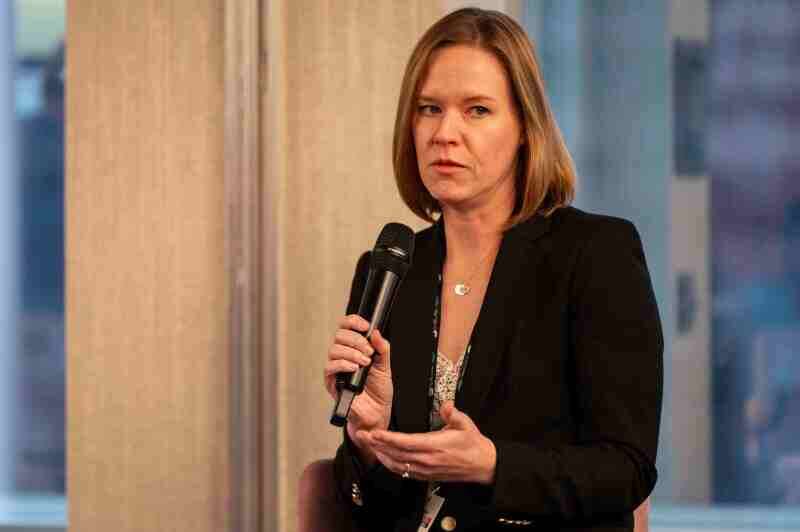
More than 80 journalists were killed while doing their jobs this year, and we need better protections for journalists to keep them safe – including from prosecution and imprisonment. We are headed into a presidential election year in the US, one that promises to present its own complicated choices around how to fairly cover a highly polarised political climate. No one seems to know what’s going to happen with the global economy – some indicators point toward recession, others don’t – but people have real concerns about how they’ll make ends meet and we need to tell their stories as much as we are focusing on Wall Street. And we do that against the backdrop of a challenged business environment, with softness in the ad sales market expected to continue (at least at the top of the year), and a fractured media ownership landscape.
All that said, I always find hope – I guess you could call it a reason to be cheerful – in our mission, and in the incredible people I am lucky enough to work with day in and day out. When times are tough, people need trusted news outlets more than ever, and I feel grateful to be part of helping people better understand the world they live in, especially now. We’re also entering a new phase at CNN with a renewed focus on telling stories across multiple platforms and products, and I plan to spend as much time as possible in 2024 innovating in that arena.
Christine Cook
Chief revenue officer, Bloomberg Media
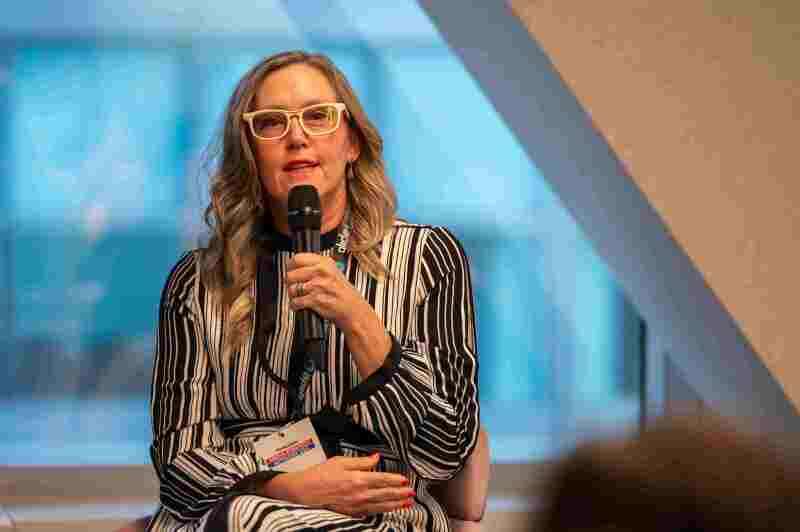
The biggest challenge in 2024 will be staying prepared to pivot our advertising business solutions to meet quickly changing client buying patterns. We are dealing with it in two ways related to data and insights:
1)we will continue to provide thought leadership extracted from proprietary research conducted by our data and insights team to help our advertising clients more deeply understand the changing business dynamics.
2) We will focus on teaching broader departments beyond front-line sales about each of our clients key verticals to tailor our offerings and how we service the post-sales. We do this in many ways, but primarily harnessing direct client feedback front-line sales receives and improving communication flow more broadly through the organisation.
Nicholas Carlson, Business Insider
Global editor-in-chief

The challenge for news organizations like Business Insider is remembering you don’t want to be a publication for everybody. Because there are news aggregators built into every phone, that path can be tempting. But it leads to generic and predictable journalism at best.
At worst, it can mean your shop gets shuttered. You have to be for a particular group of people who feel seen and heard by your work, who learn to love it, and who seek you out by bookmarking your homepage, downloading your app, or subscribing to your newsletters.
That’s why we’re Business Insider again, and we’re focused on people who want to grow professionally and personally, and who believe business and innovative thinking can drive positive changes in the economy, their careers, and their lives.
Rachel Corp, ITN
Chief executive
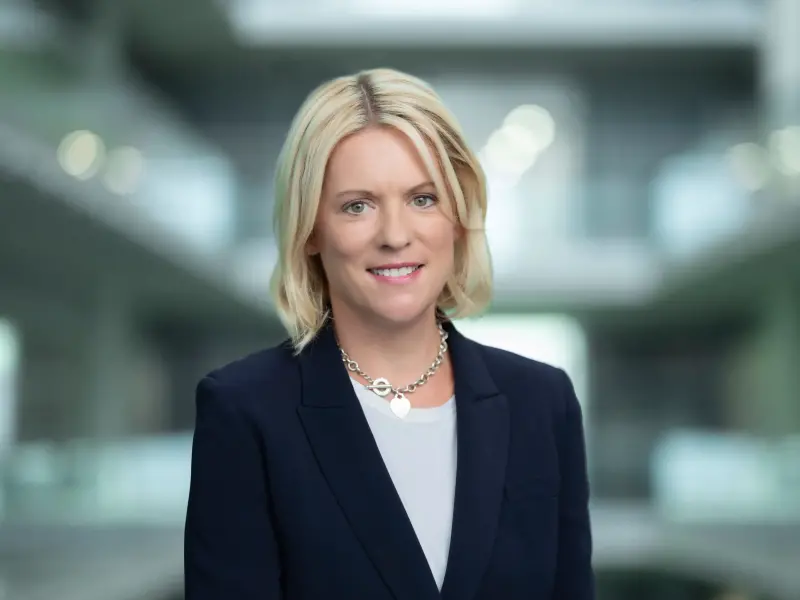
It feels right to end the year paying tribute to all our talented colleagues in the field who have been covering conflicts around the world, whether in Israel and Gaza, Ukraine or elsewhere. We should be grateful for their bravery and determination in telling the stories of those affected by war all year round. We must remember too the toll of conflict reporting on all our journalists, ensuring there are continued mental health and well-being measures in place to support them.
Despite the obvious challenges, I remain optimistic about the role of broadcast journalism. Our newsrooms continue to see growth, whether that’s Channel 4 News reaching younger audiences on YouTube and elsewhere or the successful launch of the ITV News service on ITVX, while 5 News continues to buck trends with year on year growth for the 5pm bulletin. Our court reporting has also continued to benefit from the filming of sentencing, after many years of lobbying by ITN along with the BBC, and Sky, including on high profile cases such as the trial of Lucy Letby. And, following another lively year in politics, including the UK’s first Coronation in 70 years, COP28, it is clear there will be no let up on the demand for political journalism in 2024.
We are already beginning to think about how best to cover the numerous elections that will be taking place around the world next year, including in the UK. Elections are a really exciting time for any newsroom, but we need to ensure that technological developments such as generative AI don’t negatively impact the trusted and impartial reporting that we know audiences turn to us for. It is why we wrote to the DCMS requesting journalism roundtables to discuss the issue and consider what guardrails may be needed, and we look forward to these cross-industry conversations taking place in the New Year.
We will also be continuing to closely monitor the commercial impact and opportunities presented by AI. Over the past year there has been a significant focus on large language models and at ITN we are focused on how video models are developing. It is really important that policymakers are alive to the potential impact AI could have on the financial viability of journalism going forward, whether that’s through our copyright being infringed or search results incorporating our journalism without credit or re-direction to our websites.
And, with the Media Bill now in Parliament we are entering a new phase of UK public service broadcasting where the current ecosystem could be enhanced online through this new legislation. I am really pleased that the new system has commitment from all political quarters. Next year will bring Ofcom the challenge of filling in the detail of the framework that the Media Bill will create. The UK’s PSB system has ensured viewers have access to impartial, regulated news and it has helped production companies to grow and flourish, contributing enormously to the creative economy. UK audiences need to be able to continue to find the news that Parliament is now mandating as necessary to UK society in the future.
Nick Flood, Future
Global ad product & revenue operations director

With the deadline for the depreciation of third-party cookies approaching in January, agencies and advertisers are going to struggle to find their target audiences across the open web. The vast majority are already preparing for the post-cookie world, but a key question for us next year will be how we can help to best reach audiences online and deliver results. As a result, in 2024 publishers will increasingly look to build their own sophisticated targeting solutions to address both advertiser needs and audience demands through 1st party solutions such as Future’s Aperture and contextual solutions.
We are, therefore, expecting a rise in demand for contextual targeting solutions and first party audience activations as it allows for greater accuracy and speed in categorising content, making it instantly targetable for advertisers. We see ‘time-to-target’ as critical, especially during retail moments like Black Friday which are increasingly competitive landscapes. We know from our audience behaviour trends that consumers are spending more time researching very specific products, and so with contextual targeting advertisers can reach shoppers as they research and browse our expert product reviews.
David Higgerson, Reach
Chief digital publisher

Biggest challenge
The biggest challenge facing any publisher is awareness and making sure that your content gets in front of your audience. It cuts through everything which should matter to a publisher, from revenue which funds journalism through to the relevance of journalism. And in a world where there is no shortage of people happy to discredit anything they disagree with, the best route to relevance is to know your audience, and know how to engage your audience.
Practically, this has become a distribution challenge for many publishers. We all know Facebook’s position on news, and it seems happy when given the choice to showcase un-checked misinformation over verified journalism, based on its actions in Canada for example. Google too, while still committed to working with the industry, is increasingly making life harder for publishers in organic search, with some worrying trends emerging in core updates this year. And, as publishers big and small have called out, the BBC’s flexible interpretation of its own charter so it can justify putting more and more resource into text-and-images news online threatens to further endanger existing news offering from long-standing commercial publishers.
This all makes direct relationships with readers much more important, yet is only part of the story. We need to avoid at all costs turning journalism into a service for the naturally hyper-engaged, so need to find ways to reconnect with the upwards of 30% of people who claim to be regular news avoiders.
How we’ll deal with it
At Reach, this means spending even more time next year using the information shared with us by 13 million registered customers to understand how we can be more relevant to them in more areas of their lives. News journalism will always be at the heart of what we do, but readers are telling us through their actions online that it, alone, isn’t always enough to warrant visiting over other online activities.
We are increasingly changing the ways we tell stories, as well as changing the topics we choose to cover. In 2023, we saw significant growth in followers and video streams on TikTok, for example, for our established brands such as the Mirror, Liverpool Echo and Manchester Evening News. The Mirror found its voice on TikTok for politics, while the Express grew quickly for Royal coverage on TikTok. Our new social brand, Curiously, has shown us where to engage, how to engage and the topics most likely to resonate.
Overall, Reach entered Q4 with the number of under 35s reading our websites going up, thanks to work done in all of our newsrooms, showing that the idea that under 35s won’t consume news in a conventional way is wide of the mark – it takes effort from us to understand the right way to pitch stories, and which stories to choose.
Relevance is also the reason why our work in diversity, inclusion and belonging is so important. Publishers can wave goodbye to relevance if target readerships don’t see themselves represented in what they read, or represented in the newsrooms which claim to be serving them. Our Belonging Project, which sees newsrooms work more closely with under-represented communities on their patch, will focus on socio-economic representation in 2024.
As we deepen relationships, we will find new opportunities to supplement advertising revenue with new revenue lines too. We expect a number of these to become significant in 2024, using our scale which opens many doors as a chance to build on the 13 million deeper relationships we’ve created.
But…
We need help as an industry. The Digital Markets Unit has been long promised but has yet to materialise as it should. It really shouldn’t be this hard. You will find few people who disagree that verified journalism makes communities of all shapes and sizes, better places to be in. So the Government needs to legislate so that more of the advertising revenue which goes to the distributors online finds its way back to the creators, be that publishers like Reach, or independent hyperlocals which do such a good job.
Where platforms actively deprioritise accurate journalism, such as Meta, the Government must look at the impact on society of such a decision, especially in an election year. Financially supporting reliable information creation must be part of the deal when building platforms which grab so much of peoples’ time online. Simply being allowed to say ‘we won’t take news if we have to pay for it’ as Meta has, simply isn’t on.
The Government also needs to take action on the BBC’s attempts to push commercial publishers out of digital news. From national stories which the BBC simply wouldn’t haven’t previously covered, through to its expansion into local news online at the expense of much-loved local radio stations, the BBC talks about being a collaborator with the industry, but is increasingly a threat.
In local in particular, if it goes unchecked, its creation of 100 or so new online jobs, covering local communities to a greater depth than it has previously cared to do online, could be the tipping point which leads to many more job losses than it has created in online – even without allowing for the local radio jobs lost to fund this expansion. The BBC will say otherwise, but the data emerging from the BBC around huge audience growth in local, at a time when the overall local news market is, at best, static, paints a very bleak picture which should alarm anyone who cares about local journalism.
James Lamon, Footballco
EVP content & operations
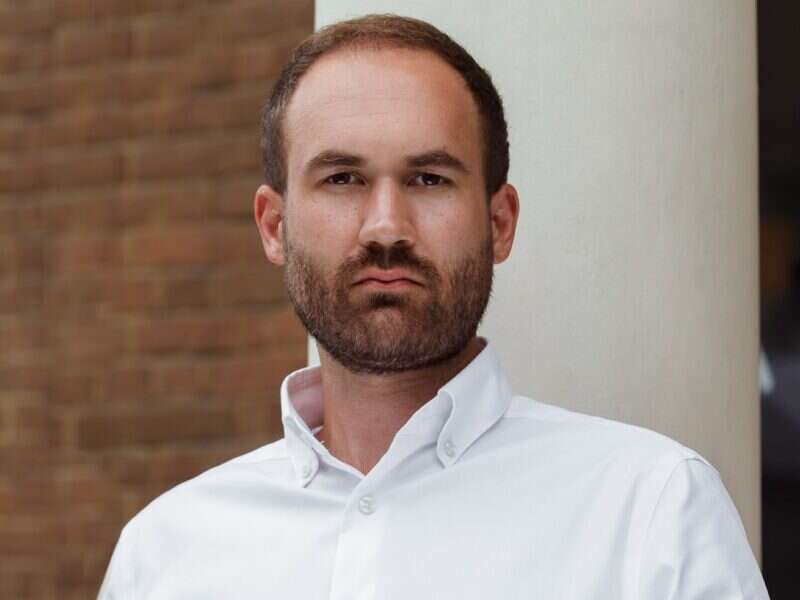
Challenges
All publishers have seen advertising spending fall this year, Footballco included. We projected a down year after the blockbuster World Cup in 2022, but 2023 brought unwelcome surprises with the war in the Middle East and economic uncertainty. We were able to lessen this impact via growth in revenue diversification, specifically affiliate which grew 300% in 2023 and subscription revenues from the re-launch of Mundial magazine.
Reasons to be cheerful
We’ve made investments in several areas that mean we can approach 2024 with optimism, such as improvements to our products, audience targeting technology, and editorial content, specifically video.
Football is growing in regions where we’ve made significant investments. In Saudi Arabia, Kooora and GOAL Arabic put us in a dominant position in one of the fastest-growing advertising regions in world football. In the US, interest in the football has never been higher. Next year we will continue to invest in GOAL’s US offering, following the recent appointment of Jason Wagenheim as our CEO of America.
In Europe, we have Euro 2024. Landmark tournaments move the needle for our business. We expect all our brands to see the benefit, such as GOAL, SPOX (Germany), Voetbalzone (Netherlands), and Calciomercato (Italy). Our audience research suggests this Euros marks a return to the familiar for fans with football in the summertime and in Europe. Our fans are looking forward to the joy of this tournament more than any recent tournament. We’re excited that our product, publishing, and partnerships will be stronger than ever to entertain them.
Almar Latour
CEO Dow Jones and publisher Wall Street Journal

It’s clear that the contours of a new era are taking shape all around us. This will continue into 2024 as the world grapples with two unfolding wars, geopolitical tension, economic uncertainty, political uncertainty and new technologies including generative AI which could further blur the lines between what’s real and what’s not.
So, the challenge facing all of us in the news media industry is how do we navigate the confluence of these forces. How do we build resilient, dynamic business models; how do we invest in distinctive, exclusive journalism; how do we get the right value for our IP when it comes to AI learning models; and how do we use AI to better serve our customers.
Reliable information has never been more important in our increasingly complex world. At Dow Jones and The Wall Street Journal, we see a surge in demand for our products and services during times of great uncertainty. We are really built for this moment and we take seriously our responsibility to provide people with trusted information to help them make informed decisions, be it in business, policy or at the kitchen table.
Will Payne, The Sun
Director of digital (editorial)

The last year has been one of unprecedented volatility. In the early months of 2023 The Sun drove record traffic across our four sites – .co.uk, .com, Scotland and Ireland. Our US team had a particularly impressive start to the calendar year and our .com site was named the fastest growing newsbrand in the US in February, April and May by Press Gazette. But the latter part of the year has seen distributors of digital content change their models to the detriment of online publishers.
That direction of travel looks set to continue into 2024 and presents our biggest challenge. But we are seeing this challenge as an opportunity and our objective for the coming year is to drive deeper engagement with readers, employing new, multi format content strategies, to complement our scale model.
There are so many innovative new ways to reach audiences, both on and off platform, and 2024 will see us prioritising new formats, particularly in the video space. We also have an increased emphasis on more sophisticated reporting to enable us to maximise every page view. Lots of publishers focus too much on top level page view numbers, despite the fact a page view’s business value can vary dramatically depending on a variety of factors. In a world where site visits are harder and harder to drive, maximising every single site visit in a variety of ways has never been more important. Our new reporting metrics will enable us to do that. Offering a genuinely personalised on site experience, serving users with content they want, is another way to maximise every visit. Improving our personalisation functionality is a key priority for 2024.
And finally, we are making great strides in developing our AI capabilities. AI is without doubt an industry disrupter, but it is also a great opportunity and by using it to improve newsroom workflows, we can free up our journalists up to produce more high-quality, trusted content. In a world of mass AI-produced, low-value content, quality journalism will be at even more of a premium than it has ever been.
Sherry Phillips, Forbes
Chief revenue officer
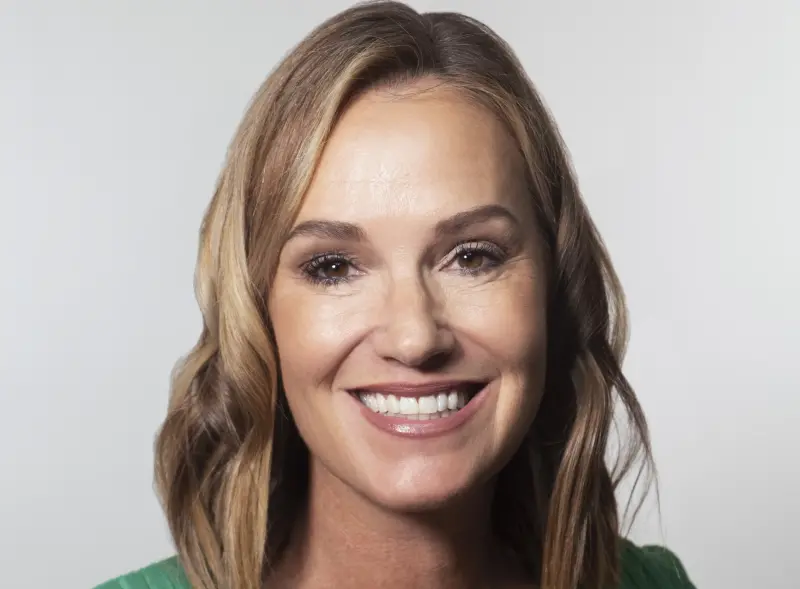
What is the biggest challenge for you next year, and how will you deal with it?
This year has been dominated by rapidly changing developments in technology, particularly with the acceleration of GenAI and Web3. Over the last 12 months, most media companies have been working to keep pace with a hugely dynamic tech landscape, understand the implications of new technologies and consider whether they present a risk or opportunity for their businesses, journalists and, most importantly, audiences.
While many are understandably cautious about implementing emerging technologies such as AI, at Forbes, we believe that AI has the power to redefine how businesses operate, power growth, and redefine how brands are perceived. There is so much to be gained from experimenting with AI as a tool to enhance our work without ever replacing the role of individual contributors.
We’ve worked this year to better understand how AI comes into play with our partnerships, which has been built around our long-standing communities and relationships with C-suite leaders and our goal has been to cultivate multi-platform conversations on how companies can accelerate positive business, cultural and societal outcomes through the application of AI. Our partnerships span across original Forbes research surveying our C-suite audiences, live events, and platforms for our partners to develop and amplify their own thought-leadership narrative.
Forbes Research specifically uses proprietary survey data to provide rich, actionable insights into the mindset, challenges and opportunities that face our audience of the world’s top C-suite leaders, small business owners, affluent individuals, boards of directors and entrepreneurs. By focusing on AI’s unprecedented potential, the insights we’ve gathered serve as a guide for executives to develop a thoughtful, enterprise-wide approach to their adoption – leading to a culture of collaboration and innovation, and position their organizations for lasting success.
We know that 2024 will present a whole new slate of challenges and opportunities, and as an industry we will have to continue to anticipate, plan and react. But instead of shying away from possibilities, we believe that the future is shaped by those who dare to explore the unknown – it’s a core belief that has shaped our 106-year history.
And conversely, what are your reasons to be cheerful?
I’m encouraged by the continued interest we are seeing for meaningful, real-world connections and experiences within our community. Looking ahead to 2024, we have reason to be excited about the deeper, more authentic connections our audiences are demanding. Heightened awareness of the importance of trustworthy, quality journalism has strengthened the bond between media organizations and their communities.
At Forbes, communities like ForbesBLK, 30 Under 30, and 50 Over 50 are not just franchises, they’re pivotal relationship-building platforms. The events side of our business is now thriving at full capacity; we hosted 115 live events across six countries this year.
We’re seizing new opportunities to build stronger and more meaningful direct relationships with our global audience. For example, the focus on our Forbes Vetted product as part of our broader e-commerce and consumer strategy ensures the delivery of curated, trustworthy content tailored to unique interests.
In 2024, we have the privilege and responsibility to lead with purpose, embracing change, championing innovation, and above all, driving impact for our audiences. There are myriad reasons to be cheerful, and I am excited to see what the future holds for our dynamic industry.
Scott Purcell, Man of Many
Co-founder

Reflecting on the challenges and opportunities that 2023 brought to us at Man of Many and looking ahead to 2024, the landscape of digital publishing and content creation is certainly at a crossroads, particularly with the advent of AI and the ongoing evolution of search algorithms like Google’s.
One of the most significant challenges we foresee is AI’s impact on traffic flow to publishers. With AI’s growing presence, there’s been a deluge of content in the market, much needing more quality. This makes it challenging for publishers like us to compete and stand out. However, we view this as an opportunity to double down on what we do best – creating quality, original, and people-first content. As Google’s systems evolve to detect better and highlight such content, we believe there’s immense value in the insights and originality offered by experts, something that AI-generated content, often based on existing knowledge, cannot replicate.
Expanding on the impact of AI, particularly with Large Language Models (LLMs) and Generative AI, it’s crucial to understand that these advanced technologies fundamentally rely on pre-existing sets of knowledge. This means that the content they create, while seemingly new, doesn’t genuinely contribute to the body of knowledge meaningfully. This presents a unique challenge for Google and other search engines: they are now tasked with crawling and indexing an exponentially growing volume of content, much of which doesn’t offer real knowledge gain or substantive improvement to users. This situation incurs significant costs for search engines and potentially dilutes the quality of search results. Recognizing this, there’s a pressing need for search engines to refine their algorithms to identify better and elevate content that offers insightful, new information – the kind of content that expert publishers provide. This is where the true value lies for both users and the search ecosystem.
Another challenge is competing against legacy media publishers, especially in the Australian market where they have benefitted significantly from funding under the News Media Bargaining Code. This presents an uneven playing field, as these established players gain more leverage and resources. Our approach here is to leverage our uniqueness and agility as an independent publisher to create content that resonates more deeply with our audience.
Conversely, AI also presents a huge opportunity. By utilizing AI for administrative tasks – such as social media management, content formatting for various platforms, and organizing information – our journalists and content creators can focus more on producing high-quality, original content. This shift towards leveraging AI in administrative roles allows us to enhance our efficiency and maintain our commitment to delivering top-tier content.
2023 has indeed been a challenging year, but it has also been a year of remarkable achievements for Man of Many. Being crowned as B&T Media Platform of the Year and receiving multiple accolades at the 2023 Mumbrella Publish Awards, including Website of the Year and Best Engagement Strategy, are testaments to our commitment to excellence in digital publishing. Our recognition in various international fashion film festivals and our pioneering stance as Australia’s first 100% carbon-neutral digital publisher for men’s lifestyle, further highlight our dedication to innovation and sustainability in the media landscape.
As we navigate the challenges and embrace the opportunities that lie ahead in 2024, we remain steadfast in our mission to deliver exceptional content that empowers people to make positive investments in themselves and their communities, that resonates with our audience and sets new standards in the digital publishing industry.
Justin Smith, Semafor
Co-founder and chief executive
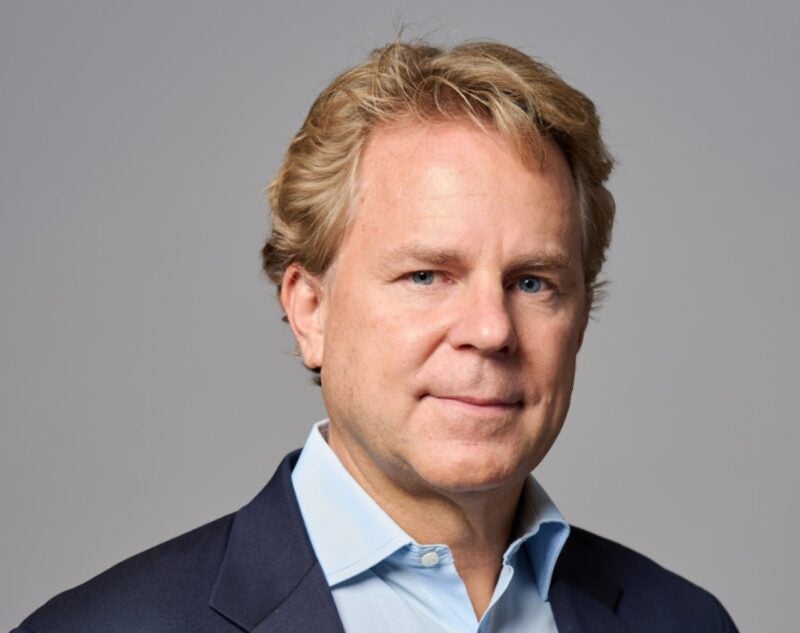
We’d like to think we’re the exception! We had an extraordinary first full year in 2023, breaking hugely consequential scoops and exclusives. We’ve also built a powerful global opinion leader audience of nearly half a million newsletter subscriptions, 3-4 million monthly readers, while quadrupling our global advertising partners.
The biggest challenge for news publishers is also our biggest opportunity – how to build and grow an audience during the decline of social media. At Semafor, we are one of the only global news platforms to launch during a time that my partner Ben Smith (Semafor Editor-in-Chief) and I describe as the “Post Social Era.” At a time when the primacy – both in terms of trust and user experience – of the social platforms has diminished, but when sophisticated readers expect multiple voices and credible perspectives on any given issue.
We’ve worked since day one to grow the Semafor audience mostly off-platform and cultivate direct one-to-one relationships with our readers. It’s working for us, and we’ve built our news ethos and journalistic approach around the notion that if you try to limit readers to one perspective on a global story or big issue, they’ll go hunting for news elsewhere.
Another major opportunity – live journalism. I spent years creating some of the biggest events platforms in global news media and it’s been so encouraging to see the increased appetite from both consumers and advertisers in the live journalism space. We built our events business before Semafor had even launched with a mission to create differentiated live offerings that actually broke news and yes, were profitable from the start. I’m glad to say we succeeded with over 50 global events and countless headlines. Next year will be even bigger.
I’m going into next year full of optimism for the future of news and I’m so proud of our entire 70+ team around the world from Lagos to London, New York, DC and the West Coast – who are proving every day that there is a future for news and a sustainable way forward for our industry.
Katie Vanneck-Smith, Hearst UK
Chief executive
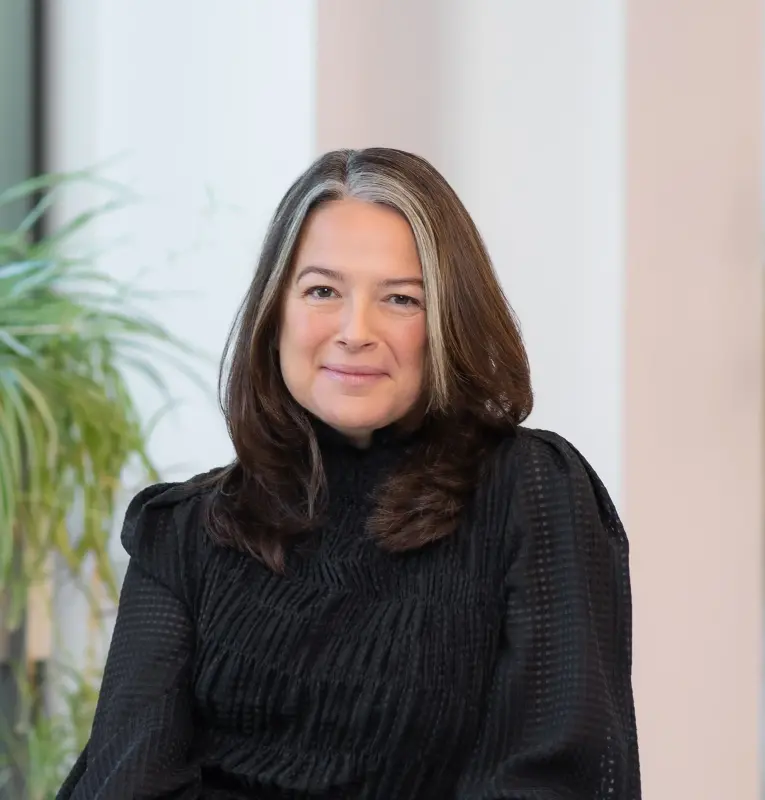
As we head into 2024, publishers can’t be dependent on one platform or one revenue stream. We need to continue to identify growth opportunities and focus on those. I’m particularly excited about accelerating our membership propositions, driving digital subscriptions and building our diversified revenues.
We also need to encourage our editors to be braver, focusing on the exceptional content AI can’t replicate.
Most importantly, we need to stop apologising for the word ‘magazine’. It’s not a dirty word, and it needn’t imply legacy. ‘Magazine’ is a format, as at home online as it is off.
Email pged@pressgazette.co.uk to point out mistakes, provide story tips or send in a letter for publication on our "Letters Page" blog
